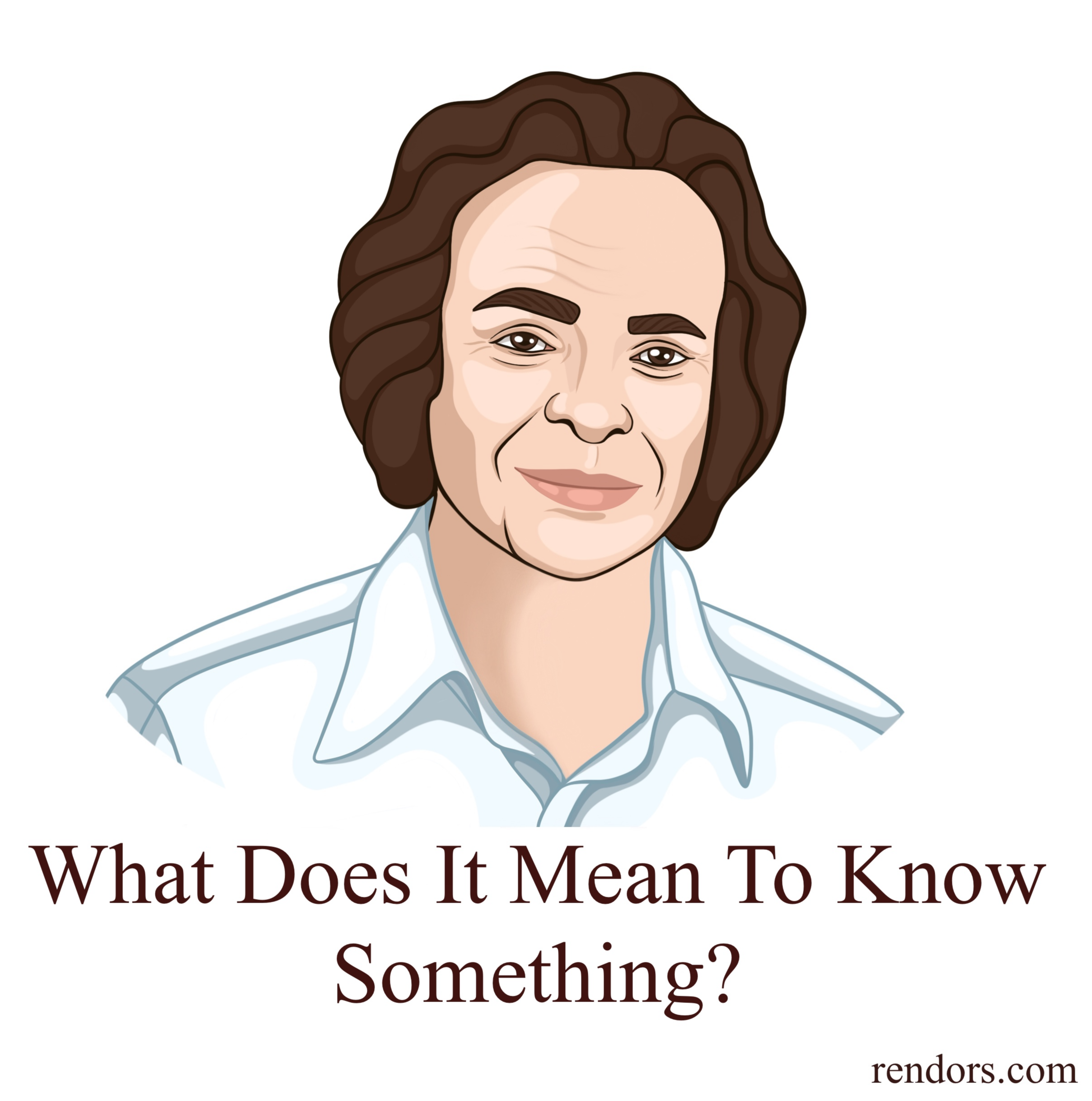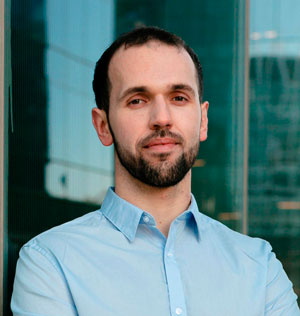Don't see an advisor you admire? Let's add him to the database! - Request

Feynman Series. Pseudo Experts and What Does It Mean to Know Something.
How do we know what we know? And why are we often so fervently devoted to protecting the beliefs that we have despite the apparent lack of evidence to back them up. For example, hundreds of thousands of people believe that the Earth is flat. Not only do they believe it, but they are often radically opposed to considering any evidence that suggests otherwise. I’m not trying to make fun of it. There’s enough roast on the subject online. Alright, I can’t help myself, so I’ll include just one meme:
I’d like to point out that the vast majority of people are confident that the earth is a sphere (oblate spheroid, to be exact), but only a few actually know it and connect real-world observations to prove this fact.
The people who know and deeply understand things are usually called experts. And we think it is ok for us not to know as long as we have those we can trust. But once we stop thinking for ourselves, we are in a very vulnerable position to be swayed one way or another by the so-called experts. Never before in history, there have been so many self-proclaimed experts advocating contradicting views. Suddenly, an average person’s state of mind is formed based not on objective truth or at the very least experience, but their choice of the news network or the podcast host.
In the book The Pleasure of Finding Things Out: The Best Short Works of Richard P. Feynman, we can witness the thought processes of a crystal clear unbiased mind of one the greatest geniuses of the 20th century, the Nobel-winning physicist Richard Feynman. Over 20 years later, his thoughts are still deeply meaningful and consequential:
We get experts on everything that sound like they’re sort of scientific experts. They’re not scientific, they sit at a typewriter and they make up something like, oh, food grown with, er, fertilizer that’s organic is better for you than food grown with fertilizer that’s inorganic-may be true, may not be true, but it hasn’t been demonstrated one way or the other. But they’ll sit there on the typewriter and make up all this stuff as if it’s science and then become an expert on foods, organic foods and so on. There’s all kinds of myths and pseudoscience all over the place.
He follows up with his thoughts on why most experts are not credible and how hard it is to know something. So much so that, I think, fooling yourself is the prerequisite of modern demagoguery. Feynman admits that he doesn’t know a lot of things, but he has “the advantage of having found out how hard it is to get to really know something.” With such an isight it seems very unlikely to him, that self-proclaimed experts actually know their stuff:
I see how they get their information and I can’t believe that they know it, they haven’t done the work necessary, haven’t done the checks necessary, haven’t done the care necessary. I have a great suspicion that they don’t know.
Unfortunately, nowadays the merits of rational doubt and the curiosity of skeptical inquiry are often looked down upon as signs of weakness and/or lack of patriotism. But this is precisely where the knowledge begins!
According to Feynman, we “should look to see what’s true and what not true. When you doubt and ask it gets a little harder to believe.”
When we have widely spread dogmatic beliefs, society starts resembling the dark ages of the medieval Spanish Inquisition. Do you think it is a far stretch to say so? Then, here’s something to consider (a real case from the siege of the US capitol building).
Just put a dark robe on this guy, consider Trump to be his god, and I won’t be able to tell from which century or even millennia he is brought to us. (short video here).
The roots of the problem
How did we end up with such a radical polarization? The simple answer would claim that it is all about open-mindedness and fact-based reasoning. But it would be the same as simply labeling things ”wrong” and stopping there. This is what Feynman would call the opposite of understanding:
Knowing merely the name of something is the same as not knowing anything at all about it. - Richard Feynman
I’d like to point out two psychological phenomena that might be (at least partially) the culprits behind some of the modern-day absurdity.
1) Commitment to consistency.
I have mentioned above the growing destructive societal pressures on an individual to take a stance on almost any controversial issue. It comes with a hefty price tag to society as a whole. The Professor Emeritus of Psychology & Marketing at Arizona State University and a best-selling author, Robert Cialdini, says we are psychologically wired to maintain the appearance of consistency:
It is, quite simply, our nearly obsessive desire to be (and to appear) consistent with what we have already done. Once
we have made a choice or taken a stand, we will encounter personal and interpersonal pressures to behave consistently with that commitment. Those pressures will cause us to respond in ways that justify our earlier decision.
Robert Cialdini (Influence: The Psychology of Persuasion)
So, we can see that an early jump to conclusions is a significant impediment to clear thinking and open-mindedness to alternative views.
2) Blind trust and reliance on an authority figure
Yale University psychologist Stanley Milgram in a series of famous experiments showed that most people would go as far as administering a deadly 450V electric shock to innocent humans just because a figure of authority has demanded them to do so. I’d like to point out one remarkable and often overlooked aspect of the experiment - the role of the uniform on the obedience level of the subjects:
In the original baseline study – the experimenter wore a gray lab coat as a symbol of his authority (a kind of uniform).
The role of the experimenter was then taken over by an ‘ordinary member of the public’ ( a confederate) in everyday clothes rather than a lab coat. The obedience level dropped to 20%.
Did you notice that in advertisements, the doctors are always wearing coats? Yes, creating a fake impression of authority is as simple as putting a coat on or changing your social media bio.
The Vicious Loop
First, we are pressured to make up our minds without sufficient information at hand. Later, we are unsuspecting victims of confirmation biases and fake authorities who keep feeding us misinformation and half-truths.
It takes a certain degree of knowing yourself and the sophisticated manipulation methods to develop clear thinking. I am afraid that if such development is neglected during the early formative stages of an individual, it is very hard to make up for it. This leads us to the issues with parenting and early STEM education. It is an important subject which I will discuss this issue in further posts of the Feynman series.
Science is not the ultimate answer but it is a good starting point
I’d like to point out that Mr. Feynman didn’t think that science can solve every problem of modern society:
There are a large number of problems that have nothing much to do with the position of science in society, and it is a dream to think that to simply decide on one aspect of how ideally science and society should be matched is somehow or other to solve all the problems.
The Pleasure of Finding Things Out
I don’t think there can ever be a perfect answer to the problems of any society. This is why it is essential to take the steps that, despite being limited in scope, are effective: teach kids using the Socratic method, foster curiosity, comfort with ambiguity, and the striving for figuring stuff out for yourself.
Why is it so hard? In the process of doing so, the authority (parent or teacher) has to diminish their image of the all-knowing source of truth. On the other hand, such a shift would signify a transition from the culture of obedience to the relationship based on kinship, deep respect, and long-term admiration. I know that the teachers I admire the most are those who are unafraid to admit to not knowing something.
P.S.
For a curious reader who wants to learn more about the remarkable life and work of Richard Feynman, I suggest the following books about Feynman:
"Surely You're Joking, Mr. Feynman!": Adventures of a Curious Character
The Pleasure of Finding Things Out: The Best Short Works of Richard P. Feynman
Genius: The Life and Science of Richard Feynman

